Communications
SOC Plays Major Role at ICA's 2019 Gathering in DC

SOC will figure prominently in this year's International Communication Association conference, hosting multiple events and bringing expertise in internet governance, advocacy and social change, women in communication, and many other topics, to a global audience May 23-29.
Event List
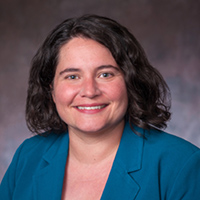 Name: Expanding Computational Communication: Towards a Pipeline for Graduate Students and Early Career Scholars
Name: Expanding Computational Communication: Towards a Pipeline for Graduate Students and Early Career Scholars
Date: May 23
Time: 8:30 a.m. - 4:30 p.m.
Location: American University, Constitution Hall, Room 3
Faculty member: Ericka Menchen-Trevino, Assistant Professor, American University School of Communication
Description: This preconference receives and discusses various perspectives for expanding the opportunities of graduate and early career scholars to become familiar with computational communication science.
 Name: Internet Governance and Communication Beyond Boundaries
Name: Internet Governance and Communication Beyond Boundaries
Date: May 24
Time: 9:00 a.m. - 4:30 p.m.
Location: American University, School of Communication, Doyle-Forman Theater (MCK 201)
Faculty member: Laura DeNardis, Professor, American University School of Communication
Description: This event will bring together ICA participants interested questions of governance, GigaNet members from other disciplines, and the local community of practitioners and policymakers The group will discuss the issue of boundaries in internet governance both as a substantive topic of research and as a reflexive exercise for internet governance as a research domain.
 Name: Sports Communication and Social Justice
Name: Sports Communication and Social Justice
Date: May 24
Time: 9:00 a.m. - 5:30 p.m.
Location: American University, Institute on Disability and Public Policy, Spring Valley Building (SVB 602, 4801 Massachusetts Ave., NW)
Faculty member: Filippo Trevisan, Assistant Professor, American University School of Communication; Deputy Director, American University Institute on Disability and Public Policy
Description: This preconference will explore the nexus of sport, representation, power, and social justice from multiple angles including but not limited to: athlete activism; the changing face of mediated sport production; the commercialization of sports events; and identity politics in sport media representation. The preconference is sponsored by the ICA Interest Groups for Sports Communication, and Activism, Communication and Social Justice.
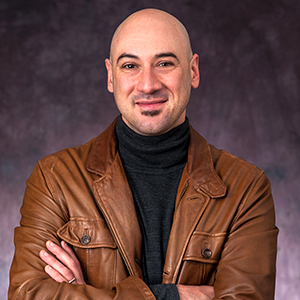
Date: May 24
Time: 9:00 a.m. - 2:00 p.m.
Location: American University, School of Communication, McKinley Building, (MCK 101)
Faculty member: Peter Lemish, Independent Scholar (Aram Sinnreich, Associate Professor, American University School of Communication, participant)
Description: This interactive, working preconference seeks participants interested in discussing how to adapt policies and develop systems to support: (1) young activist/engaged scholars, from initial hiring through successful completion of initial promotion; (2) senior faculty mentoring young colleagues, and serving on hiring, promotion, and tenure committees; (3) administrators interested in advancements in adapting activist-friendly HPT policies and support systems.
 Name: Games + Communication Ante-Conference
Name: Games + Communication Ante-Conference
Date: May 24
Time: 8:30 a.m. - 6:30 p.m.
Location: American University, Game Lab, Don Myers Technology and Innovation Building (DMTI 113)
Faculty member: Benjamin Stokes, Assistant Professor, American University School of Communication
Description: Featuring a game and research demo showcase, sessions on keywords to rethink game scholarship, methods that break play, and a keynote by Mia Consalvo.
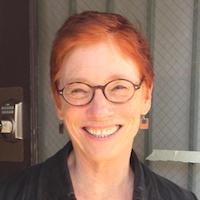 Name: Justice and Order in the Datafied Society: Connecting Communications and Legal Theory
Name: Justice and Order in the Datafied Society: Connecting Communications and Legal Theory
Date: May 24
Time: 9:00 a.m. - 4:30 p.m.
Location: American University Washington College of Law, (WCL NT-01, 4300 Nebraska Ave., NW)
Faculty member: Pat Aufderheide, University Professor, American University School of Communication
Description: What happens to society when communications (in the novel form of datafication and, underlying that, automated symbolic categorizations within database structures) begin to play a historically new role in the organization of life? Participants will formulate common questions and common agendas on the problematic implications of the datafied society. In the panels we will reflect on how the growth of automated data collection, processing and analysis, and its installation within contemporary social, economic, and political orders has created a number of major challenges: for protecting fundamental rights and values such as freedom and autonomy, for understanding the connections between communications and social order, for sustaining key institutional processes such as the law, and for maintaining the very legitimacy and authority of decision-making by legal, political and social institutions.

Date: May 25
Time: 6:30 - 9:30 p.m.
Location: Bossa Bistro & Lounge, 2463 18th St NW, Washington, DC, 20009
Faculty member: Aram Sinnreich, Associate Professor, American University School of Communication
Description: A special event celebrating Washington, DC, music, politics, and culture at the Bossa Bistro and Lounge, organized by Nikki Usher (George Washington University) and Aram Sinnreich (American University School of Communication) on behalf of the Urban Communication Issues Committee.
 Name: Building Bridges between Scholars and Advocacy for Digital Media Policy
Name: Building Bridges between Scholars and Advocacy for Digital Media Policy
Date: May 29
Time: 9:00 a.m. - 4:00 p.m.
Location: American University, School of Communication, McKinley Building, Media Innovation Lab (MCK 100)
Faculty member: Pat Aufderheide, Professor, American University School of Communication
Description: This postconference focuses on some of the major policy issues surrounding digital communication and brings together experts on these topics from the ranks of both scholars and policy activists.
 Name: Badass Ladies of Communication: The Challenges and Opportunities for Female Scholars, Success in the Field
Name: Badass Ladies of Communication: The Challenges and Opportunities for Female Scholars, Success in the Field
Date: May 29
Time: 1:00 - 5:00 p.m.
Location: Marymount Ballston Center
Faculty member: Caty Borum Chattoo
Description: Caty Borum Chattoo, Assistant Professor, American University School of Communication will discuss her experience creating a body of work and thought-leadership around media and social change, including directing a major academic research center and innovation lab, the Center for Media & Social Impact.
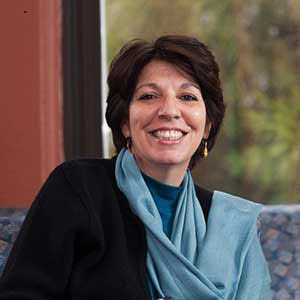 Name: Public Diplomacy in the 2020s
Name: Public Diplomacy in the 2020s
Date: May 29
Time: 9:00 a.m. - 5:00 p.m.
Location: Omni Shoreham, Capitol Room
Faculty members: Rhonda Zaharna, Professor, American University School of Communication & Kathy Fitzpatrick, Professor, American University School of Communication
Description: Participants in the public diplomacy 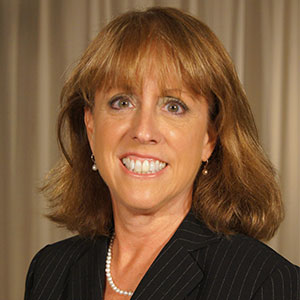 postconference will explore new directions in public diplomacy research and identify potential opportunities for collaborations and partnerships involving public diplomacy practitioners and scholars engaged in public diplomacy research.
postconference will explore new directions in public diplomacy research and identify potential opportunities for collaborations and partnerships involving public diplomacy practitioners and scholars engaged in public diplomacy research.
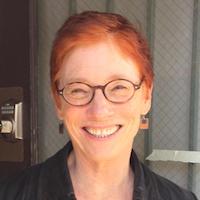 Name: Creator Governance: Platforms, Policy, Rights, and Regulation
Name: Creator Governance: Platforms, Policy, Rights, and Regulation
Date: May 29
Time: 9:00 a.m. - 4:00 p.m.
Location: American University, School of Communication, McKinley Building, (MCK 101)
Faculty member: Pat Aufderheide, University Professor, American University School of Communication
Description: This postconference looks at the economic, regulatory, and social implications of the intersection of Hollywood and Silicon Valley in the emerging entertainment form of social media entertainment.
Book Titles
Publications released by SOC faculty since ICA 2018 or anticipated to be released prior to ICA 2020.
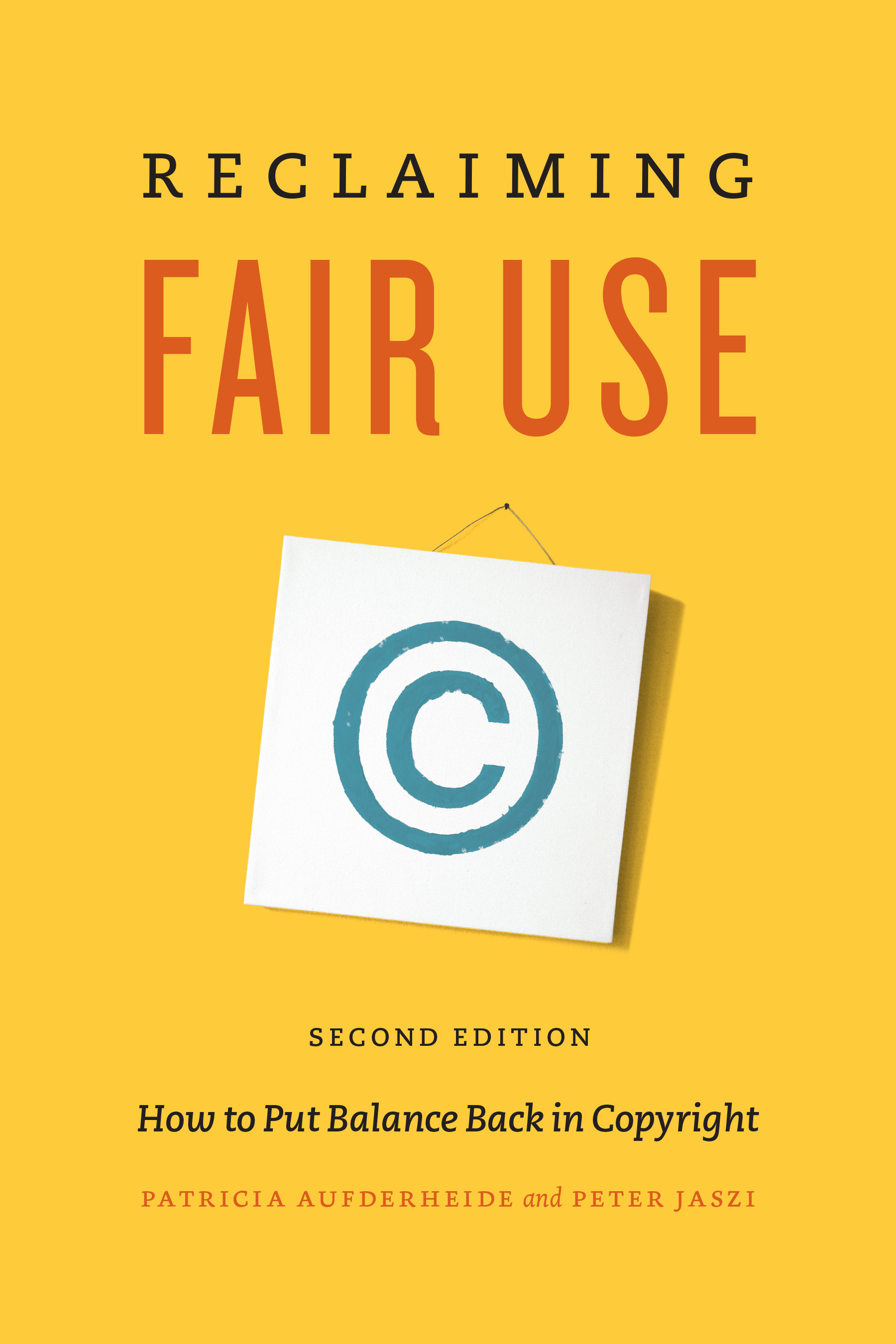
Title: Reclaiming Fair Use: How to Put Balance Back in Copyright
Author: Patricia Aufderheide and Peter Jaszi
Publisher: University of Chicago Press
Release Date: 2018.04.27 (Second Edition)
Description: Taking stock of the vibrant remix culture that has only burgeoned since the book’s original publication, this new edition addresses the expanded reach of fair use, tracking the Twitter hashtag #WTFU (where’s the fair use?), the maturing of the transformativeness measure in legal disputes, the ongoing fight against automatic detection software, and the progress and delays of digitization initiatives around the country.
 Title: The Internet in Everything Freedom and Security in a World with No Off Switch
Title: The Internet in Everything Freedom and Security in a World with No Off Switch
Author: Laura DeNardis
Publisher: Yale University Press
Release Date: 2020.01.07
Description: Laura DeNardis argues that this diffusion of the Internet into the physical world radically escalates governance concerns around privacy, discrimination, human safety, democracy, and national security, and she offers new cyber-policy solutions. In her discussion, she makes visible the sinews of power already embedded in our technology and explores how hidden technical governance arrangements will become the constitution of our future.
 Title: Disability Rights Advocacy Online: Voice, Empowerment and Global Connectivity
Title: Disability Rights Advocacy Online: Voice, Empowerment and Global Connectivity
Author: Filippo Trevisan
Publisher: Routledge
Release Date: 2018.07.27 (Paperback)
Description: This book charts for the first time the digitalization of the disability rights movement, providing an overview of the intersection between disability, citizenship, and collective action. Through the examination of social media content, Web link analysis, and interviews with leading figures in grassroots groups on both sides of the Atlantic, Filippo Trevisan reveals the transformative impact that the Internet has had on disability advocacy in recent years.
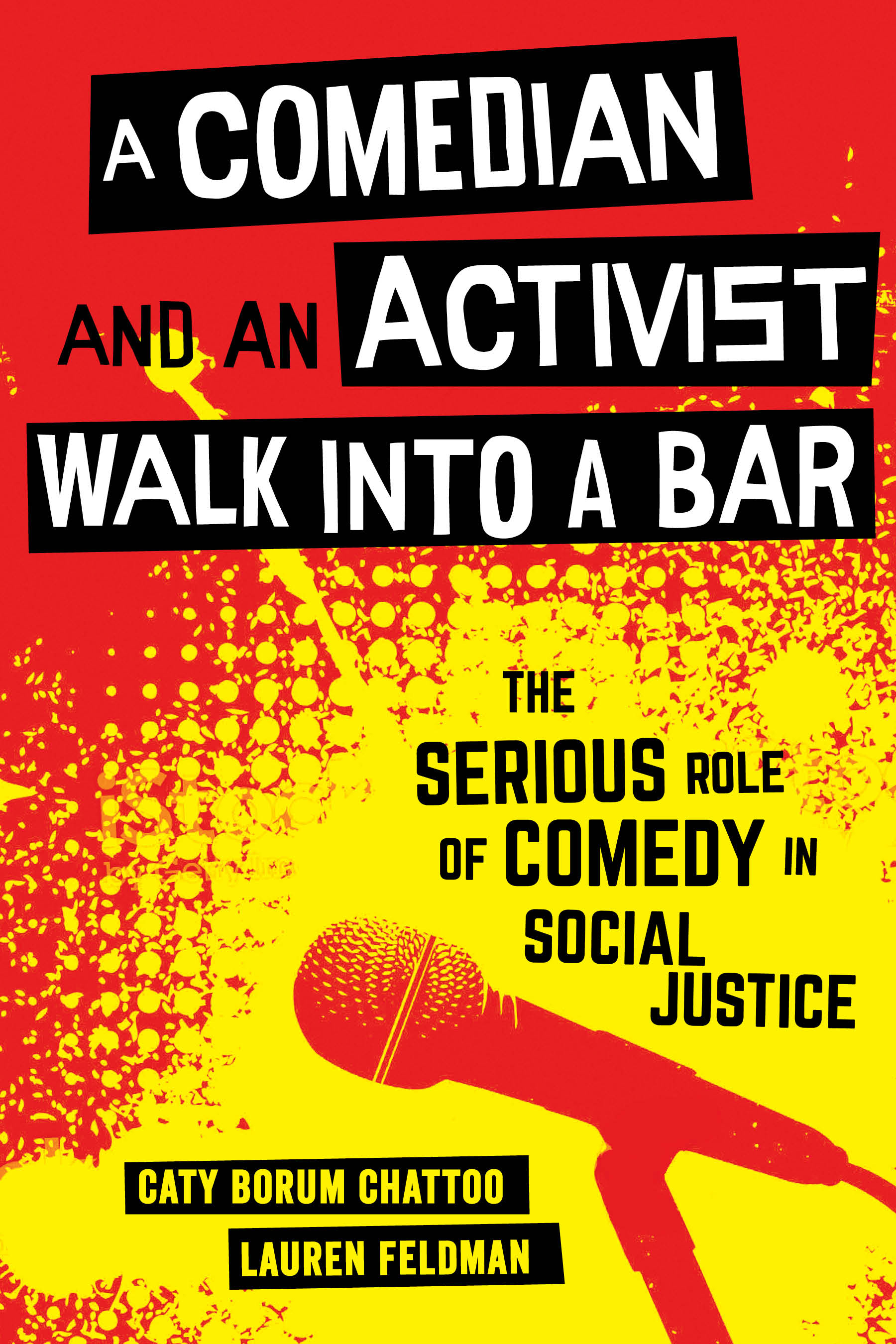 Title: A Comedian and an Activist Walk Into a Bar: The (Serious) Role of Comedy in Social Justice
Title: A Comedian and an Activist Walk Into a Bar: The (Serious) Role of Comedy in Social Justice
Author: Caty Borum Chattoo and Lauren Feldman
Publisher: University of California Press
Release Date: February 2020 (tentative)
Description: Through rich case studies, audience research, and interviews with comedians and social justice leaders and strategists, A Comedian & An Activist Walk Into a Bar: The (Serious) Role of Comedy in Social Justice explains how comedy—both in the entertainment marketplace and leveraged as cultural strategy—can engage audiences with issues such as global poverty, climate change, immigration, and sexual assault, and how activists work with comedy to reach and empower publics in the networked, participatory digital media age. This book, which features a foreword from legendary comedy producer Norman Lear, is part of the inaugural Communication for Social Justice Activism series from University of California Press.
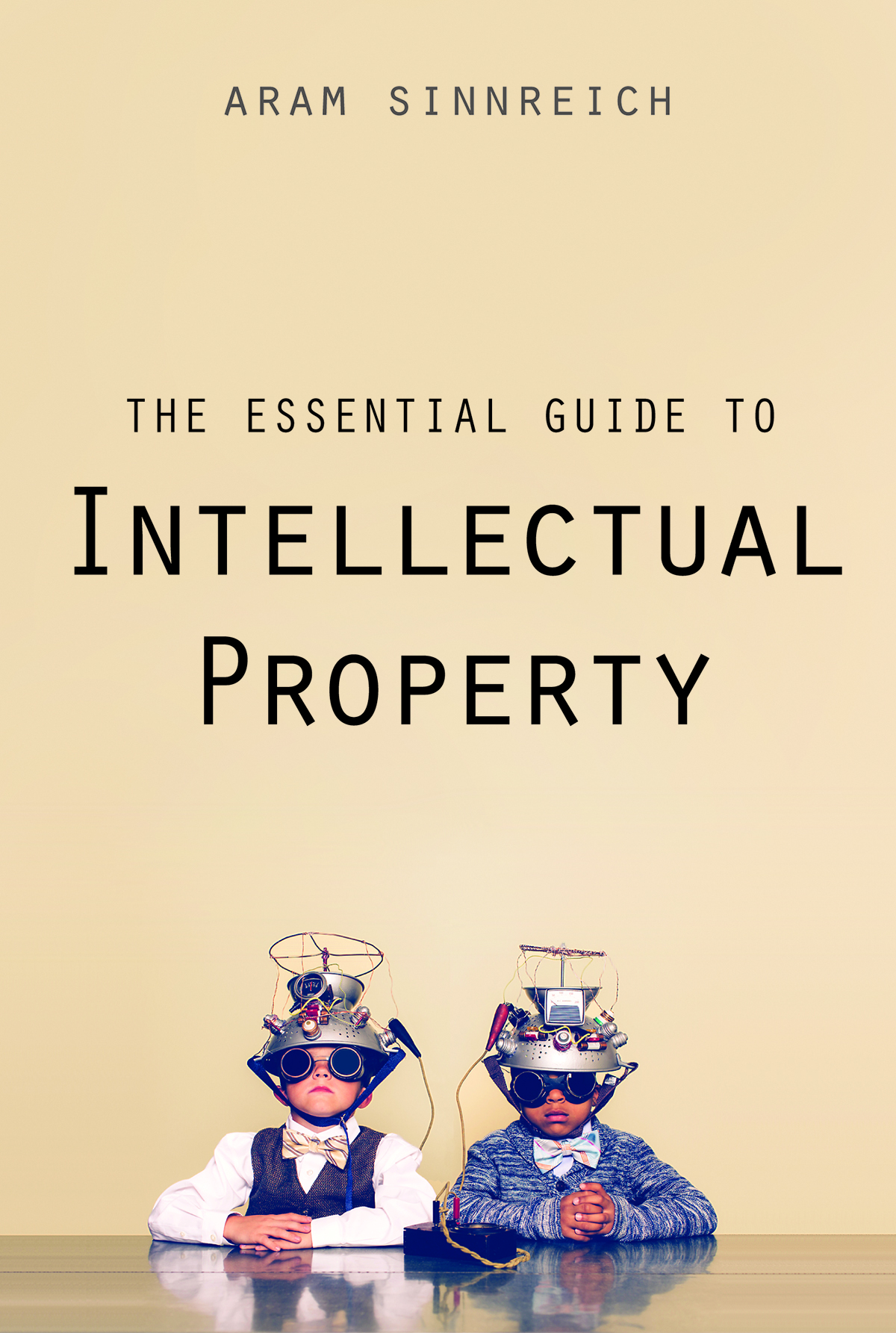 Title: The Essential Guide to Intellectual Property
Title: The Essential Guide to Intellectual Property
Author: Aram Sinnreich
Publisher: Yale University Press
Release Date: May 28, 2019
Description: This engaging and accessible study looks at the origins, evolution, purpose, and limitations of intellectual property. Detailing how intellectual property affects industry, politics, cultural expression, and medical research, Aram Sinnreich takes a multidisciplinary approach to uncover what’s behind the current debates and what the future holds for copyrights, patents, and trademarks. Based on the notion that intellectual property law is not merely a property right but also a mechanism of cultural and economic regulation with consequences for democratic institutions, global businesses, arts, and the sciences, Sinnreich draws on such diverse fields as media studies, communications, law, and cultural studies to provide a blueprint for understanding intellectual property rights and stress the pervasive role they play in everyone’s life.
 Title: Locally Played: Real-World Games for Stronger Places, Networks, and Local Communities
Title: Locally Played: Real-World Games for Stronger Places, Networks, and Local Communities
Author: Benjamin Stokes, foreword by Tracy Fullerton
Publisher: MIT Press
Release Date: January 2020
Description: In this book, Benjamin Stokes reveals how cities can use games in the real world, including to strengthen real-world neighborhoods and communities. Stokes traces effects from economic development to social justice. The games take place in cities from Los Angeles to small hubs like Macon, Georgia. Despite the massive popularity of games like Pokemon GO, Stokes shows that empowerment is only possible when neighborhoods reclaim play on local terms. With a range of methods and design principles, this book shows how games can connect strangers across zip codes, support the “buy local” economy, and build cohesion in troubled and thriving neighborhoods alike. This is a first book for city leaders to understand games in terms of neighborhood development and community empowerment.